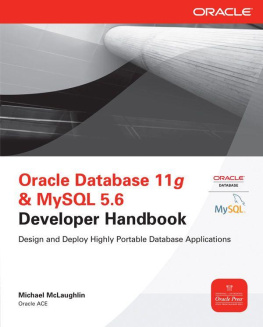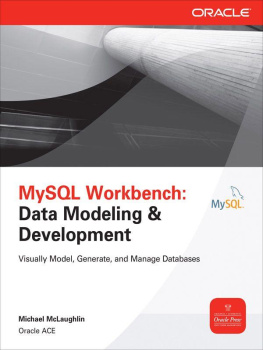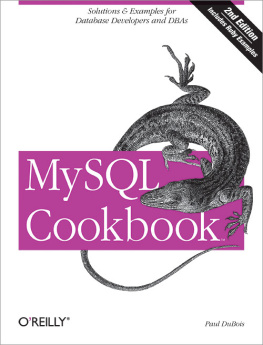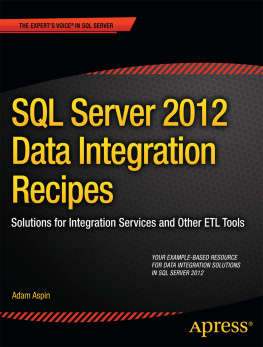Andrew Cumming is the zookeeper at http://sqlzoo.net and http://progzoo.net. He maintains a collection of SQL engines and programming compilers and invites all-comers to play with them. A graduate of the University of Sussex, he taught mathematics at Southend High School for Boys, before completing a postgraduate degree at Imperial College, London. He worked as a contract programmer for several years before taking up his current post at Napier University in Edinburgh, Scotland.
Dr. Gordon Russell is a computing lecturer at Napier University, Scotland, teaching a variety of topics including databases, Linux, and networking. He has built a number of technology-driven, web-based online learning environments. These include http://db.grussell.org, which automatically grades SQL assessments, and http://linuxzoo.net, which offers online users root access to virtual Linux servers. He holds a BSc (honors) and a Ph.D. from the University of Strathclyde. He is a Cisco academy instructor and also works on commercial contracts as a database designer and web site developer.
Acknowledgments
We would like to thank our editor, Brian Jepson, for his hard work and exceptional skill; his ability to separate the wheat from the chaff was invaluable. We are grateful to Alan Beaulieu, author of Learning SQL and Mastering Oracle SQL (both from OReilly), for his time, energy, and technical insight. In addition, the critical reviewing provided by Sheeri Kritzer (http://sheeri.com) has proved to be exceptionally useful, and she has had a significant impact on many of the hacks published here. With the help of these people this book has been greatly improved.
Special thanks to Guiti and Mary for their encouragement and support.
Preface
Now and again you have a go at something outside your area of expertise. It could be car maintenance and gardening. Maybe you can do a bit of both, but you are not a professional in either one of them. This means that a trivial but insurmountable problem can hold you up; theres a bolt that you cant get to with your spanner or a tree root that you just cant shift. When you give up and hire an expert you are impressed. The mechanics got 20 spanners and he knows which one will do the job; he also knows how to use his tools. The professional gardener isnt scratching his head because hes stuck; he knows half a dozen different ways to get that tree root out. Hes just trying to decide which one will require him to expend the least effort.
If you are that mechanic whos already got 20 spanners for every job, the hacks in this book will add a few more to your collection. We know that getting the bolt off is just the start of the job; its once that bolt comes off that your work actually begins. Were hoping that some of the tricks in this book will give you more tools for your toolkit, and the confidence to apply databases and SQL to new, interesting, and challenging problems.
If you are not an expert yet, and just an amateur getting started, proceed with caution. Some of the techniques in here can lead to trouble if you dont know what you are doing. This book is not overly concerned with good database design and sticking to the rules; were hoping you know all those things already! This book is about getting the job done. However, even an amateur will get a lot out of this book, as it is packed with a range of hacks ideal for showing off how SQL can be used to solve both easy and challenging problems.
You might have learned SQL from practical problems that you had to solve. As a result, when you approach a new problem you tend to see it in terms of these old problems and their solutions. This can lead to all of your solutions looking very similar, with a particular style and approach, whereas a slightly different approach may have produced a more efficient or more easily understood solution. This book is all about suggesting new approaches to problems, and highlighting styles of problem solving which you may not be totally familiar with. The result should be a better understanding of the breadth of SQL, and how different approaches to a problem can result in simple and elegant solutions.
Why SQL Hacks?
The term hacking has a bad reputation in the press. They use it to refer to people who break into systems or wreak havoc with computers as their weapon. Among people who write code, though, the term hack refers to a quick-and-dirty solution to a problem, or a clever way to get something done. And the term

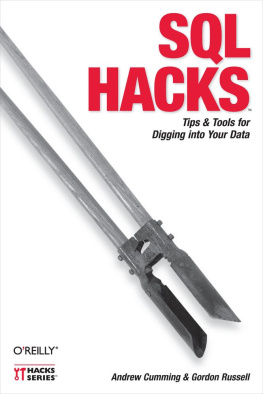

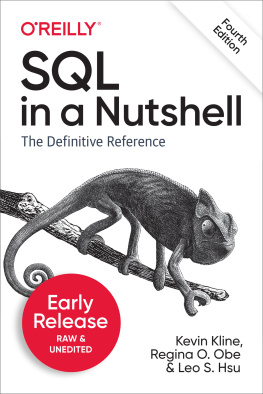

![Molinaro - SQL cookbook [query solutions and techniques for database developers ; covers SQL server, PostgreSQL, Oracle, MySQL, and DB2]](/uploads/posts/book/221182/thumbs/molinaro-sql-cookbook-query-solutions-and.jpg)
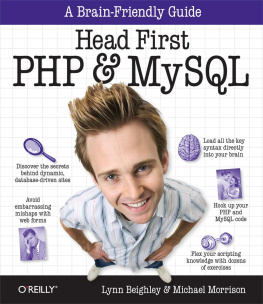
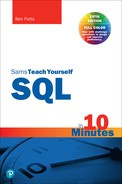
![Kline Kevin E. - SQL in a nutshell: [a desktop quick reference ; covers MySQL, Oracle, PostgreSQL, and SQL server]](/uploads/posts/book/138111/thumbs/kline-kevin-e-sql-in-a-nutshell-a-desktop.jpg)
